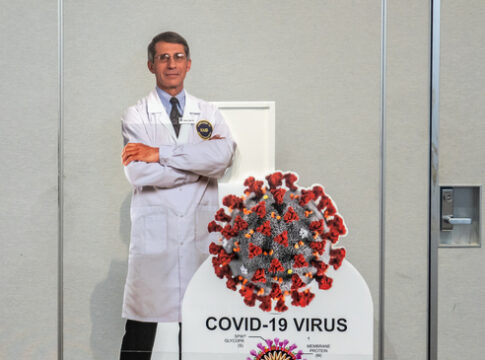Recent revelations have sparked controversy over the National Institutes of Health (NIH) and its handling of gain-of-function research information. Documents obtained by the nonprofit Empower Oversight through litigation have unveiled troubling practices by the NIH, suggesting that the agency may have been misleading journalists about its involvement in gain-of-function research at the Wuhan Institute of Virology (WIV).
The controversy centers around the EcoHealth Alliance, a U.S.-based nonprofit that received NIH grants for research on MERS and SARS viruses. An investigation by The Intercept revealed that EcoHealth Alliance conducted risky experiments that involved altering virus components to enhance their infectiousness.
FINALLY, the NIH admits it funded "gain of function" research at Wuhan. Researchers made coronaviruses more infectious.https://t.co/Z37EYLQM5a
So @RandPaul was right! He tells me he doesn't want an apology, just wants government to STOP funding such dangerous research: pic.twitter.com/c2F6Q229CR
— John Stossel (@JohnStossel) May 16, 2024
This type of research, known as gain-of-function, was supposedly paused by the White House in 2014 due to its potential dangers. However, documents show that the NIH may have continued funding these experiments despite the moratorium.
In 2016, EcoHealth Alliance's Peter Daszak described these experiments in a letter to the NIH, proposing to swap out receptor-binding domains of MERS with those from other coronaviruses. This proposal came before the pause on such funding was lifted in 2017, raising questions about the NIH's compliance with its own policies.
"Playing With Fire" – A video timeline of the NIH monkeypox gain-of-function "scandal" that I made last summer that features exclusive commentary by @R_H_Ebright from his bunker. https://t.co/YLpNcc4NGI pic.twitter.com/KLb08CFoFL
— Bryce Nickels (@Bryce_Nickels) June 12, 2024
Further complicating the matter, Daszak testified before Congress in May 2024, where he was accused of providing inconsistent statements regarding the nature and scope of the research funded by NIH.
Congressional investigators have called for a criminal investigation into whether EcoHealth Alliance and Daszak intentionally misled both Congress and the public about the gain-of-function research conducted at the WIV.
The NIH has repeatedly stated that the research conducted did not meet their definition of gain-of-function because the viruses studied were not known to infect humans. However, this definition has been contested by experts who argue that the experiments posed significant risks of creating more dangerous pathogens.
This controversy has reignited debates over the ethical implications and safety of gain-of-function research. It also underscores the need for greater transparency and oversight in scientific research funding, particularly when it involves potentially pandemic-causing pathogens. The calls for more stringent regulations and accountability are likely to intensify as further details about the NIH's role in these experiments continue to emerge.


